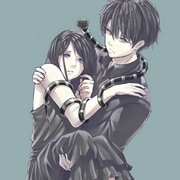The Lower Council convened in the Peacock Room, so named for the extravagant paintings of the flashy bird decorating the walls and paper screens. Whatever artist had designed the place must have had a penchant for the ostentatious, to say the least. The royal blue birds had eyes like jewels and tails that burst with color and pomp. The painted peacocks strutting across the wallpaper struck Roshani as gaudy and distasteful, but the room was the traditional meeting place for the Lower Council.
The audience here was more intimate than the grand Hall of Reception, where the royal throne stood proud and tall, but still made space for nobles of differing status. Roshani’s eyes skimmed over the crowd of men and women assembled before her. They were all dressed finely in bright sashes of deep purple and blood red, their necks coiled with gold ropes and their ears heavy with green and yellow diamonds.
Five out of the six Great Houses were represented. Lord Mukhar Suhren and his sons, the upper echelon of their house, stood in a tight circle, glancing with mistrust to the rivals surrounding them. Zana Aspabadh chatted amiably with a group of equally fashionable young women from House Mihran while Jawed Kayanid and his relations looked on curiously, as if wishing to join the conversation.
These were the four houses that Roshani had on her side: Suhren, Aspabadh, Mihran, and Kayanid. House Pahlavi, those traitorous, backwater herdsmen of the mountains, had declared their support for Esfandar. And the most aggravating of all, Goshtab Varaz and his wealthy, powerful province, had declared neutrality for the foreseeable future.
Roshani’s hands clenched into fists at her side as she recalled her outrage at Goshtab’s refusal to bow to her rule. Blessed with exceptionally fertile land and resources, House Varaz was nearly as wealthy as all of the other Houses combined. Whoever Goshtab decided to support would be practically guaranteed a victory.
Roshani’s gaze drifted toward Farah, the daughter of Goshtab himself. Technically, she too was here to represent her House in spite of their obstinacy that bordered on treason. The princess was dressed in a simple, elegant gown the color of dark honey that flared at the waist. Her hair was pinned with a gold hair-piece in the shape of a sun, and fragments of topaz in the shape of raindrops hung from her ears. She waited patiently in silence, not speaking to the others while they mingled, though many gave her interested glances. Roshani idly wondered whether she had received such attention at her father’s court as well.
“We will begin this session of the Lower Council now,” Roshani spoke, her voice clear and firm. The voices ceased instantly, every pair of eyes focusing on Roshani’s figure seated in a large mahogany chair at the front of the room.
“You’ve all heard the news already. Esfandar has successfully conquered the northern city of Shiraz. His army suffered minimal losses, and he has now made the city the base of his army.” Roshani purposefully moved her gaze to meet the eyes of each noble, making the severity of the situation clear. “House Pahlavi as well has betrayed the empire to join his rebellion. I want every House with any economic tie to House Pahlavi, any stake in the trade with Shiraz or the region at all to cease all commerce there immediately. We won’t give them any advantage they can exploit. The sanctions will weaken an already hungry army.”
“It’s not so easy to cut off economic ties all at once, your highness,” Lord Mukhar replied. “I do not directly control the actions of every individual merchant and tradesman in the Suhren Province.”
“And you don’t have to,” Roshani spoke coldly. “Anyone caught trading with them, anyone caught returning with goods that are suspect- they will be executed immediately. This is the order every house will institute and enforce from now until the end of this war.”
“People will resist such orders,” Lord Mukhar pushed back.
“Are you so weak in your loyalty to the empress, Mukhar?” Zana Aspabadh hissed, her snake-like eyes narrowing at him. It was House Aspabadh, after all, who had ruled Shiraz for centuries and who ruled it still in her eyes. It was her brothers and sisters Esfandar had killed or forced out when he conquered the city. The indignation in Zana’s eyes flashed and her nostrils flared. “The cost of a few merchant lives is nothing compared to the importance of rooting out the traitor.”
“My word is final,” Roshani interceded, affirming Lady Zana’s complaint. “As always, Lord Mukhar your insight is appreciated. But my decision here is undisputable.”
The corner of Mukhar’s mouth twitched in irritation. All of the nobles bowed their heads forward in unison at her command. “Yes, your highness,” they spoke in unison.
“Rise.” The nobles straightened once more at her command. “This issue is of the utmost importance. See to it that it is enforced.”
“Your highness.” Roshani turned her head to the new voice. Lord Jawed Kayanid stepped to the front of the audience, his graying beard neatly braided and his upper lip sprouting a thick moustache. “I have another important matter to discuss.”
Roshani’s smile turned itself into a scowl. She already knew what he wished to say. “Go ahead.”
Jawed cleared his throat. “There is the matter of the royal succession, your highness,” he said. “Neither Esfandar nor Soraya have clear heirs, eliciting doubts among many about who shall succeed them. Your highness, if you were to have an heir will give you significantly greater legitimacy over them. And aside from the war itself, of course, the lineage of House al-Hassan must continue.” He stopped short of stating the obvious. Roshani internally scoffed- how honorable of him to let her fill in the blanks for herself.
“You are suggesting I take a husband,” she stated flatly.
Jawed straightened his shoulders in clear anticipation. “An excellent notion, your highness,” he said. “I believe it is necessary, vital in fact, for the future of Parthia.”
“I agree.” Lord Mukhar’s low grumble added as he stepped forward. “Your great-grandmother, the great Empress Azita, also took a husband soon after ascending the throne. It secured her reign and brought prosperity to the empire.”
Roshani suppressed a wry smirk. If he thought to affect her by flattering her ancestor, he was mistaken. Azita had been forced to marry a prince of House Suhren, under threat of a coup by the powerful Suhren Lords. The eager glint in Lord Mukhar’s eye seemed to indicate he also recalled this history, and would not be at all averse to repeating it.
You can try to usurp me if you dare, Roshani imagined herself replying sharply. But I will never take a husband, not as long as I live. You can count on that. She had seen how marriage had ruined her mother, turning her desperate to retain her position as favored wife for her daughter’s sake. She had seen her once powerful grandmother slighted and weakened by her husband and son once she became too much of a threat. Marriage and the politics that came with it were what tore dynasties apart- Roshani would play no part in it.
Instead of speaking, Roshani bit her tongue, holding back the words. That was not what these lords wanted to hear, not when they each secretly hoped she would marry their son and tie their House even closer to the throne. She could see it in their eyes at this very moment, that fervent hope, that desperate dream. The temptation for such power, the desire to rise above their rivals, distracted them from becoming focused on Roshani’s faults. Roshani intended to use that to her advantage for however long she could.
Before Roshani could calculate a proper response to the two lords, a delicate voice cleared its throat. All heads turned toward Farah, who stood unassuming yet proud to the side of the audience.
“We have yet to address the issue of Lady Homeira and Prince Kasra,” Farah reminded them. “I believe this is our most pressing concern.”
“An easy enough question to deal with,” Lord Jawed replied flippantly. “They should both be executed. Traitors cannot be left alive to reignite rebellion once we take our eyes away from them.”
Roshani kept her expression neutral, listening to the argument passively. She did not want to give any of her emotions away, especially not on this issue.
“Kasra took no part in this treason,” Farah protested, her brow furrowing. “How can you punish a child for the crimes of his mother?”
Lord Mukhar chuckled lightly. “You clearly have much to learn about the ways of the palace, princess,” he said. “That is all the more reason to kill the child- or else someday he will grow up to avenge his mother.”
Jawed nodded sagely. “It is as Lord Mukhar says. The blood of traitors always runs true.”
Roshani reeled back as if slapped. The blood of traitors always runs true. The words rang in her ear, incessant and unsettling. She had last heard them from the mouth of Homeira, right after she had been recaptured. But now Roshani remembered another moment when that saying had imprinted itself in her mind. She had been small, little more than eight. She had knelt on the floor of the grand hall, her father and his advisers looking down at her as they discussed her fate. She would have spoken, would have said something to defend her mother, but she had already screamed herself hoarse.
“She should be executed with her mother,” an advisor had whispered in the Shah’s ear. “The blood of traitors always runs true.”
The memory of that day, of her pure horror and fear and guilt, was visceral. Roshani’s breath was knocked out of her lungs by the force of it and her vision went red. She stood up from her seat suddenly, her expression full of fury. The lords cut off their discussion, heads swiveling to stare at her.
“Homeira will be executed for the crime of her betrayal and treason,” Roshani announced, voice harsh and uncompromising. “But Kasra will not be punished for his mother’s crime.” As she spoke, the wheels in her brain began to turn, leading her down the clearest solution. She now recognized what she needed to do. “My lords, you wish for me to produce an heir, and I have heard your pleas. From this day forth, Prince Kasra, youngest son of Shah Jamshid of the blood of House al-Hassan, will be my son in name and title.” The reaction from the nobles was of genuine surprise, their eyes widening and mouths opening. A few, like Lord Mukhar, were openly angered. From her peripheral vision, Roshani caught sight of Farah’s lips quirked into a small smile.
“This is my final word on the matter,” Roshani boomed. “Carry out the proclamation immediately: the heir to the Parthian Empire has been declared.”











Comments (0)
See all